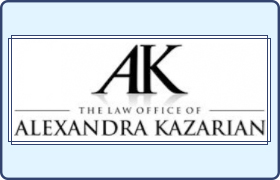Montrose White Collar Crime Lawyer, California, page 3
Sponsored Law Firm
-
 x
x

Click For More Info:
-
The Law Office of Alexandra Kazarian
15851 Whittier Blvd Whittier, CA 90603» view mapCriminal Law Aggressive & Experienced Criminal Defense
Trust the Law Office of Alexandra Kazarian with your Criminal Defense Case in Whittier & Los Angeles California.
800-773-5851
Sylvan Philip Daroca
Criminal, Administrative Law, White Collar Crime
Status: In Good Standing Licensed: 44 Years
Tarik S Adlai
Litigation, Federal Appellate Practice, White Collar Crime, Civil Rights
Status: In Good Standing Licensed: 32 Years

 Alexandra Kazarian Whittier, CA
Alexandra Kazarian Whittier, CA AboutAlexandra Kazarian Law Firm
AboutAlexandra Kazarian Law Firm Practice AreasExpertise
Practice AreasExpertise